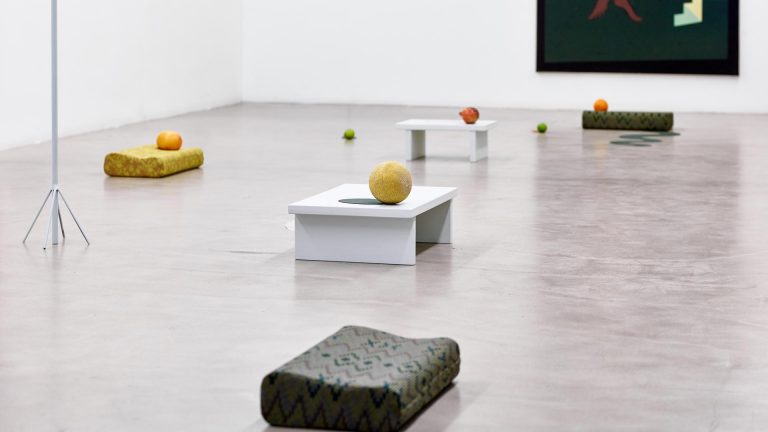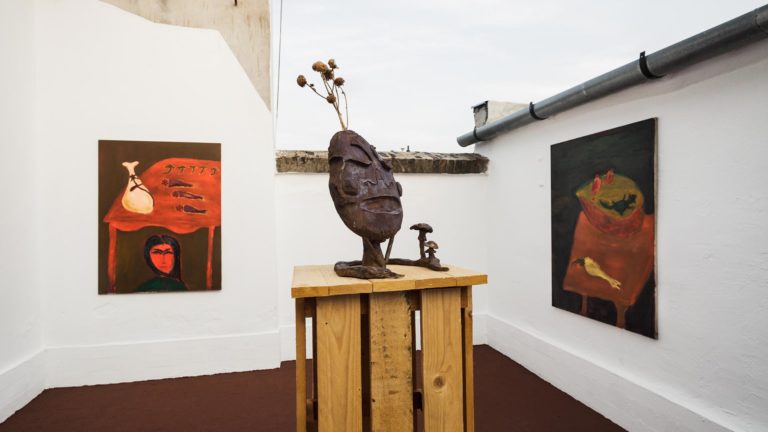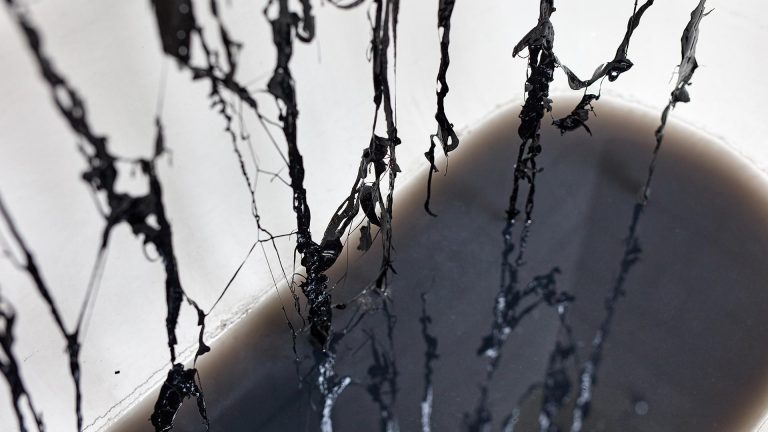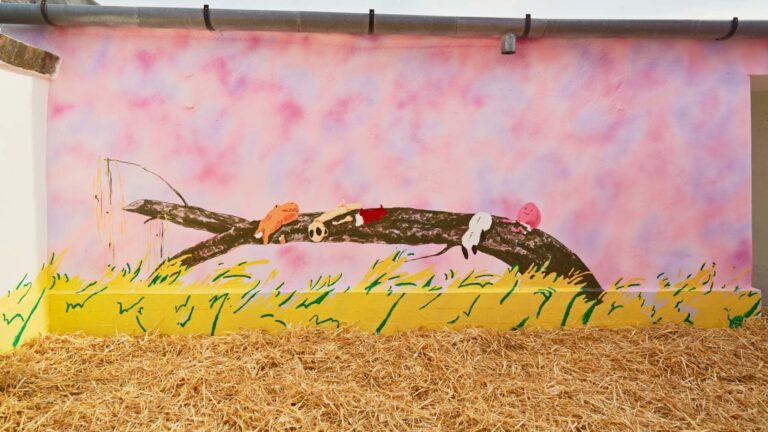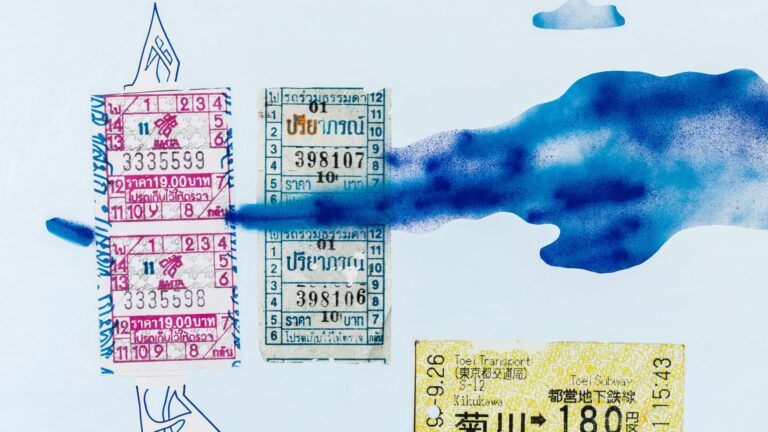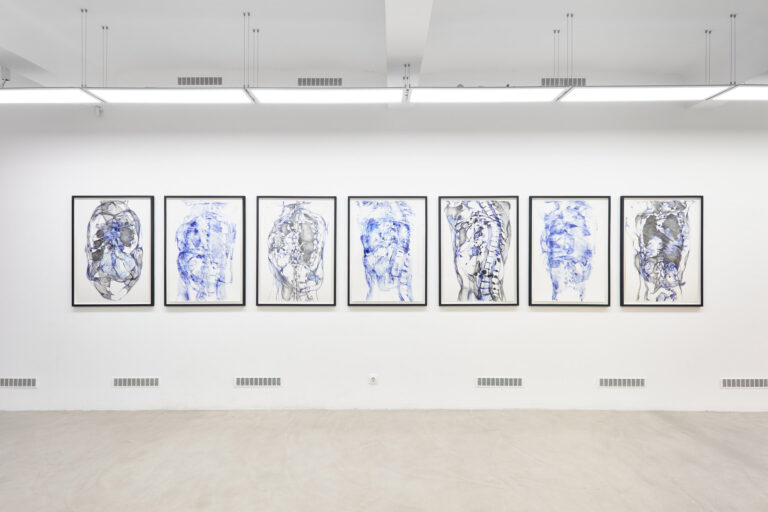“Chance is never alone here. The author must make a place for it; he must choose the system in which chance will be able to operate.” (Jindrich Chalupecky)
Humans have the unique ability to see the world as outsiders: we are able to see the world not only through our own experiences or interests, but also from a perspective that is, in Thomas Nagel’s words, “The view from nowhere”. Another aspect of the philosophical study of perspectives is the alternative reality created by digital media. The image of the world conveyed by mass media, whatever its intentions, is inherently distorted. Our knowledge is not acquired through direct perception, but ‘second-hand’, through technical intermediaries. In this way, what is perceived as a whole, as a process, by direct experience is broken up into fragments, reduced to parts.
The exhibition is based on a series of paintings entitled ‘Lossy’, in which this type of information deficit and distortion leads to abstraction. The geometrical and structural starting points are the error phenomena generated in the online space. The architectural structure of the compositions was essentially determined by functionality, but an error resulted in the manipulation of the original image files. In many cases, typographic and other graphic elements have been lost and rearranged, resulting in motifs that balance on the borderline between construction and destruction. The phenomenon is symbolic when approached from the perspective of the economic and social relations of the present day, and can also be seen as a simultaneous application of a Dadaist and a Constructivist method of image-making.
Sándor Dávid Papp was born in 1989 in Nyíregyháza. From 2009 to 2015 he studied at the Department of Graphic Art at the Hungarian University of Fine Arts. In 2013, he continued his studies at the Accademia di Belle Arti di Brera in Milan on an Erasmus scholarship. From 2012, he has had numerous group and solo exhibitions in Hungary, as well as exhibitions in Florida, Stockholm, Bratislava and Strasbourg. He has received a Gyula Derkovits Fellowship for three years. Currently lives and works in Budapest.
























































